|
My husband and I worked for a family-owned hardware store chain in the late 1970s. I left in 1993. My husband worked there until 2006, but that’s his story to tell. The Orchard Supply Hardware chain was small, local, offered fabulous customer service, had employees with specific expertise, and held an inventory of things one could not – and still cannot – find elsewhere. 5-gallon pickle jars. Every canning accessory one could ask for. A huge array of tools. It was a candy store for the project or construction-oriented shopper. The stores had a distinctive smell. Years after I worked there, whenever I walked into a store, I was immediately transported to my time working there. That odd, chemical smell was strangely comforting.
Large, heavy, and bulky items were kept in what was called the “pick up station.” Customers picked up a “pull tag”, a heavy paper card, 3 inches by 5 ½ inches, with a hole punched in the top and the name and price of the item printed, or hand written on the face. When I worked there, customers brought their pull tags to the register, where we rang them up, and placed a flexible lead (yes, lead) wire through the pull tags and the receipt, threaded the end through a fastener, and crimped it closed with a tool. All of this took time. Customers had to be patient. They were. Once properly rung up, threaded, crimped, and paid for, we handed the pull tags and receipt to the customers who then drove through the pick-up station where employees were on hand to load their purchases into their vehicles. When pull tag items had been discontinued, my husband brought home the left over pull tags. Always pragmatic, he thought we could use them as scratch paper. They are blank on one side. Nearly 30 years later, we still use them for lists and notes. There is a nail pounded part way into a shelf in our kitchen storage closet. Pull tags hang from that nail and we pull them off and use them one by one. I swear there is a never-ending supply somewhere in our house – in a secret location. Pull tags will be part of our legacy to our daughters. Actually, they expect that legacy and will be disappointed if they don’t come across a stash of pull tags in our belongings. Orchard Supply Hardware gave me many, many things. I grew up there. I met life long friends there. I learned many skills that I still use. One of our daughters worked there. They closed last year, and it was tremendously sad. That company and those stores touched so many people in northern California – and beyond. I miss it. I am grateful for it. And I still have pull tags! Every time I use one for a list of chores or errands or things to buy, I think about Orchard Supply. Now it is bittersweet. Here’s what happens to me when the words won’t come, ideas are gone, my muses are ignoring me, and my brain feels empty.
Drink my coffee Eat my breakfast Read the paper Work the Sudoku puzzle Sit down at my desk Start my computer Open at least 3 Word documents with works in process and one blank one Read the works in process and make a few edits Add a sentence or two to a couple of them Stare at the blank page Work an online Sudoku puzzle Check email Check Facebook Write items on my to-do list Delete the sentences I wrote earlier Beg my muses to speak to me Look at writing prompts Write a few sentences on the blank page Make more edits to the works in process Sigh Do a load of laundry Go to the gym Go to the grocery store Clean out the chicken coop Clean out the cat box Decide what to make for dinner Sit back down at my computer Write a few more sentences Delete a few sentences I wrote earlier Save all the open Word documents (I’m not stupid, just stuck) Re-read what I wrote today Re-read my edits on works in process Decide not to post anything on my blog – again I have lots of works in process Some may become things I want to share Most won’t At some point, I resort to typing up recipes from all the notes I have scribbled on scraps of paper At least I’m writing And I will be able to replicate dinners I made up on the fly Some of those recipes may be worth sharing Most won’t I know my muses will get over their snits And begin to talk to me again I try to stay open to them But sometimes it’s hard I wonder what I did to make them mad I can take revenge I left Pindi pouting and scheming in her chamber Maybe she should stay there awhile I left Sessel right after her wedding to Clarence They need some privacy I left my shape shifter sitting on a fence in the shape of a robin I still don’t know what she will do next Robins don’t speak English And they don’t always understand what humans do Neither do I It rained for a week. Maybe two. Gusting wind ripped the few remaining leaves from their branches and tossed them into the air. The leaves soared, danced, and fell to the street, sodden from the rain, where they stuck to the sidewalks. Water dripped from trees and eaves and ran in a torrent down the streets to the storm drains. Where it stopped because of the buildup of leaves and debris, backing up to flood the intersections. The mud in the chicken yard squelched underfoot and stank like wet chickens and worse, wet chicken poop. It made me thing of ogres. The pond came close to overflowing when a storm took out the power and the overflow pump stopped working. The cat sat in the doorway glaring at the rain through the screen door.
Then the clouds went away. The sun came out. The sky was blue. The birds sang. Buds swelled, close to bursting. Chickens danced and sang. The cat went outside. The patio was warm. I sat outside with a book, leaning back in the chair, my legs propped up on the patio table. The soporific effect of warm sun pulled me into a nap. I felt like a cat dozing in a spot of sun. Then I realized I couldn’t see the words on the pages of my book. It wasn’t because I was reading with my eyes closed, dreaming about the book. My eyes ran with tears. Then the sneezing started. And the coughing. There was a tickle at the back of my throat. And my ears itched. Pollen. I haven’t missed you. In honor today's Women's March
We march Old women, young women, babies, and teens Long hair, short hair, dark skin and light Thin women, round women, happy and sad Tall women, short women, angry and kind Brown eyes, blue eyes, green, and grey We march through our streets and towns We march with friends, neighbors, and strangers We wear pink hats for unity We carry signs We march for unity We march for inclusivity We march for leadership and equal pay We march for health care and child care We march for housing we can afford We march for respect and dignity We march to help those who have less We march because we are strong, and brave We march to show our daughters we can change the world We march It has been awhile since Sessel has made an appearance. If you want to catch up, here's when the first five chapters were posted:
Chapter 1 November 2, 2018 Chapter 2 November 12, 2018 Chapter 3 December 3, 2018 Chapter 4 December 5, 2018 Chapter 5 December 12, 2019 Minneapolis, June 1922 “Can you believe it? I’m getting married in a week!” Cecil fidgeted in her dress while Christine, her mouth full of pins, was trying to mark the hem just above the ankles, in the latest, daring fashion. “Will you be still, Cecil? Your dress will have the most uneven hem ever.” Christine was exasperated, but also excited for her best friend. She hoped that Cecil’s engagement would inspire Henry to propose to her. Cecil didn’t want a fancy dress. Ever practical, she told Christine, “no one will notice or care what I am wearing. This is a serious ceremony. Clarence and I will be wed. That’s what’s important.” “Do you think Clarence is nervous?” “I am sure he is. Henry said he was pacing and puffing on his pipe like a steam engine.” Henry and Christine were standing up for the young couple. “My sisters Serena, Bertha, and Anna are coming tomorrow. And my brother Osmund, too. Oh, how I wish Ina could be here. And Nils. But he’s in California. Can you imagine?” -- The morning of June 24, 1922 was bright and clear; a rare day of low humidity in the summer. The Hennepin United Methodist Church was filling with friends and family. Decorations were simple. Clarence smiled when he was Cecil down the aisle. “All these people are here for us? I don’t want any fuss.” Cecil looked at her family and worried. “Hush Cecil. You should be happy. This is a joyous occasion,” Serena scolded her sister. “It’s nearly time. I’ll go find my seat.” After the ceremony, Cecil, Clarence, and their friends and family gathered for a celebratory lunch. Cecil and Clarence strolled the garden, talking and laughing. “Where should we live?” asked Cecil. “Do you want to stay in Minneapolis?” “There’s land available for homesteading in Iowa.” Clarence explained in his slow, steady way. “I’ve a mind to move there. I can find work as a carpenter and we can have a small farm.” This is still a work in progress, but I like it so far.
He wears a black bolero and he plays the violin. He plays it for the mousies when he wants to let them in. His pants are made of stripey fur, his feet are long and black He cuts a dapper figure, this black and tawny cat. It is nearly time for the nightly reverie. The musicians begin to gather and talk about their day. They gather in the hallway and they tune up all their toys. The cat adjusts his black beret while his band begins to play. A hound dog plays the bass with a low and steady thrum And a bushy tailed squirrel taps a beat upon the drum While the mousies dance the jitterbug in the hallway near the stair And the children sleeping down the hall are completely unaware Of the party in the hallway and the animals on the run. In the early morning before the sun is up The animals in the band scurry off to their beds And the cat jumps up onto the bed Of the children sleeping peacefully with music in their heads. And he curls up into a ball to sleep day away With visions of another night of jazzy music to play. I love making shrimp stock. Heating the empty shells in a dry pan, then adding water, watching it steam, then simmer for 20 minutes makes a beautiful, delicate broth.
Then my husband sees the bowl of fragrant stock cooling on the counter and pours it down the sink before he starts doing dishes. Sigh. I can gut a fish, but I don’t enjoy it. I love making chicken and turkey stock. I threaten my hens that they will be in the stock pot when they get old. But I don’t have the heart to do them in. I love buying local organic olive oil by the half gallon and decanting it into a ceramic vessel to use every day. I love the char on a good piece of meat or fish. I also love sashimi. I love making pizza dough, rolling it thin, and cooking it on the grill; a crispy, delicious base for olive oil, grilled veggies, or figs. I love eating vegetables in season, but I make one exception. There are always – and I mean always – red bell peppers in my fridge. I won’t touch an off-season tomato, but I need my red bell pepper fix. I love pomegranate arils. Pips. Seeds. Whatever you want to call them, they are delightful. I love cooking simply. I try to help the flavors of what I cook sing their songs and then get out of the way. I am not a transformative cook. Why would you want to transform something that is already delicious? I love looking at pictures of beautifully prepared food. They make me hungry. They can inspire me. I don’t like the term “food porn”. Why make appreciating beautiful food sound prurient? Cooking inspires my writing. When I am in my kitchen preparing dinner, ideas, words, stories come to me. I run back and forth between the kitchen and my office to capture them before they evaporate like steam. That’s why dinner is typically late. But usually worth the wait. I need a little magic on this cold, wet, blustery day.
I need to be reminded that blue skies will come. It’s a day for wrapping in a blanket and reading a book. Maybe sipping tea. But not for a fire. The man who inspected our fireplace said, “no more fires, it isn’t safe.” We don’t want to burn down our house Or inhale smoke because the chimney won’t draw So, this weekend we’re off to the gas fireplace store. There were birds singing wildly outside the grocery store this afternoon. They want blue skies, too. They feel it coming in longer days. Soon leaves will burst and buds will bloom. I see magic in everyday things. In the shimmer of a rainy sky. A promise of a rainbow. I see a diamond in a rain drop clinging to a branch; Raindrops clinging to the ends of the branches look like crystal flower buds waiting to explode into rainbows. I see a fairy in a pile of leaves. I tell his story. I see faces in the trees when I hike through woodlands. I nod and say hello. I see dragons and dinosaurs in drift wood. I nod and say hello. I see magic in the love of a new born babe, nestling in a mother’s embrace. I see magic in a loved one’s eyes. I see magic in life, and in strength to overcome adversity. I see magic in art, in dance, in music. I asked my dad to build a cradle for my first born. I helped design the cradle with bunnies and bears. Dad built it with skill and love and promise. A family heirloom. The cradle is carved with the names of his grandchildren who slept within its embrace. One great-grandchild has slept there. His name was the last one dad carved. There will be more. I wonder who will carve their names. Magnus crouched low, creeping silently towards the grasslands. He lowered himself to the ground next to a rock outcropping and scanned the horizon, his tail twitching. Feeling hunger pangs, he knew he needed to hunt, to kill. He needed to gorge on the flesh, meat, sinew and blood of a fresh kill until his belly was distended and his hunger slated. The mouse he killed earlier lay where he left it. It had tasted like dusty fur and catnip. Not worth his time. He wanted a springbok or other small antelope. A small herd with babies would be perfect. He could cull a baby; separate it from the herd for an easy kill. He twitched his whiskers. No sign of game. No scent of game. Only a giraffe ambling back forth, browsing on the tall branches of the baobab trees. He wondered if he could bring down a giraffe.
He tensed, his body ready to spring. Closer, closer…now! He leapt at the giraffe as it walked closer on impossibly long legs. He grabbed a thigh with his powerful claws and held on, intending to climb as high as he could to topple the giraffe. “Ouch, Magnus. You startled me. What are you doing? Get your claws out of my leg!” yelled the giraffe. Magnus dropped to the ground. He had forgotten that these two-legged giraffes talked. He waited while his tall prey rubbed its thigh, then launched himself at its ankle, wrapping his body around the foot while kicking and biting at its hoof. “What are you doing, you crazy cat?” yelled the giraffe. “I’m trying to fold laundry. Don’t trip me.” “I am not a crazy cat. I am a lion. You are my prey.” Magnus shook his head to puff up his mane-like ruff and stretched. “And I’m bored.” He yawned hugely, showing off his long incisors, then turned and sauntered away, eying the stack of soft, warm, clean folded towels. The towels looked comfy. It was time for his nap. Mmmm. I love cioppino. I made this recipe by adding or subtracting ingredients from several sources. I hope you enjoy it.
½ while or yellow onion, chopped 2 medium garlic cloves, minced ½ bulb fennel, chopped ½ green bell pepper, chopped 8 to 10 small potatoes, cut into bite size chunks (optional) 1 tsp dried oregano 1 tsp red pepper flakes 2 bay leaves 1 tsp salt ½ tsp freshly ground black pepper 1 tsp olive oil 2 T tomato paste 1 cup wine or broth for deglazing 1 28 oz can whole plum tomatoes 1 bottle of clam juice or shrimp broth; see note Approx. 1 cup chicken broth, depending on thickness of broth 1 lb mussels or clams 1 lb shrimp or crab or both 1 lb skinless while fish cut into 1 inch chunks ¼ cup finely chopped fresh flat leaved parsley 3 T finely chopped fresh basil Sour dough bread for serving
Note: Clam juice can be replaced with shrimp broth: remove shells from shrimp as you are cleaning them. Place the shells in a dry pan over medium heat, cooking and stirring until they are pink and fragrant. Add 2 cups water and simmer 20 minutes. Strain out shells. |
Archives
January 2023
Categories
All
|
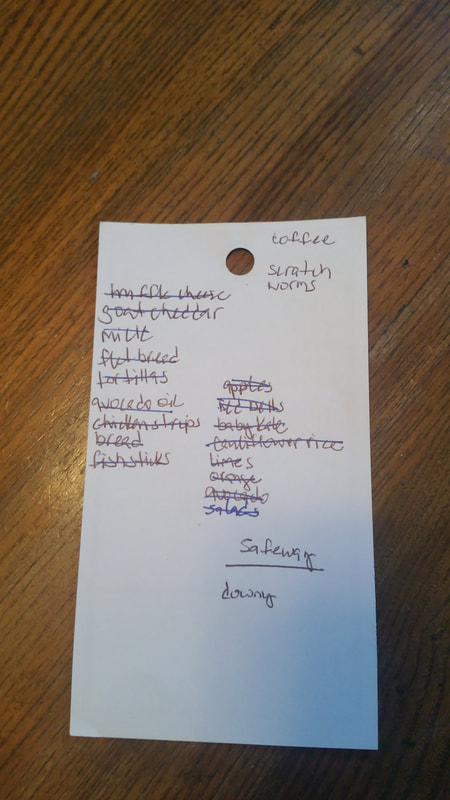
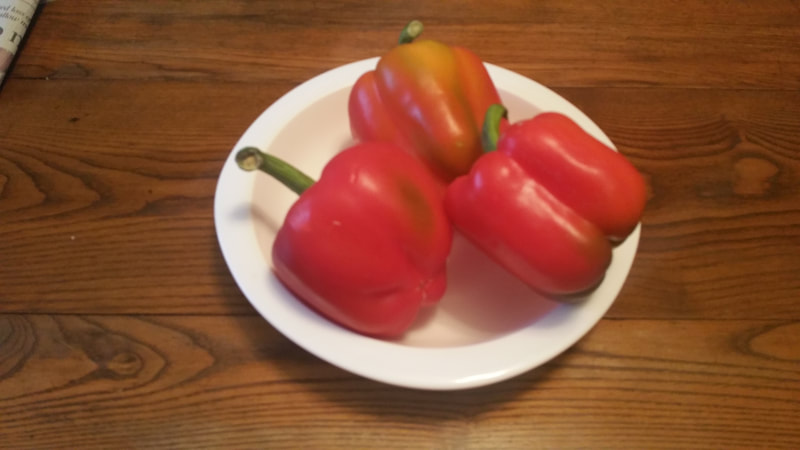
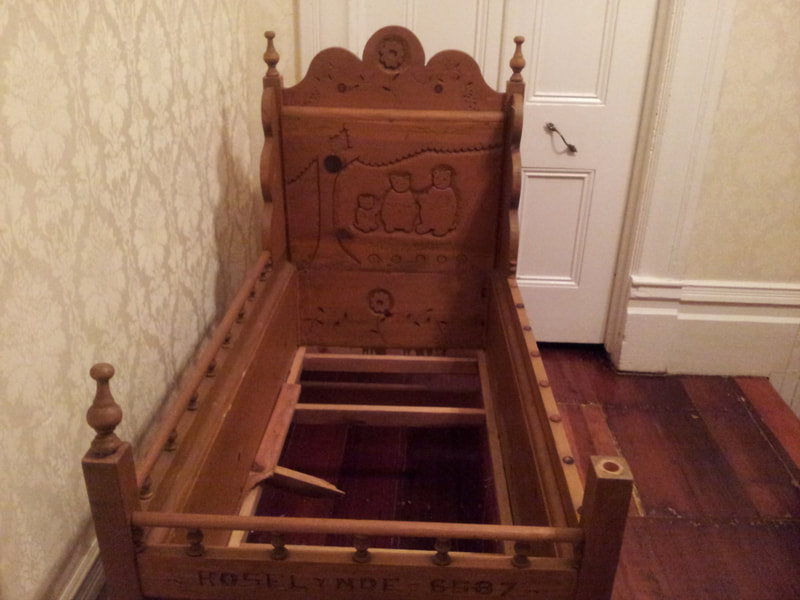
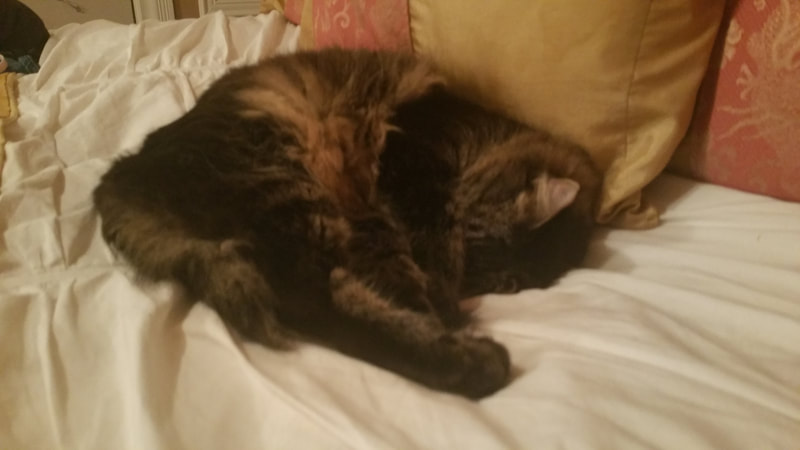
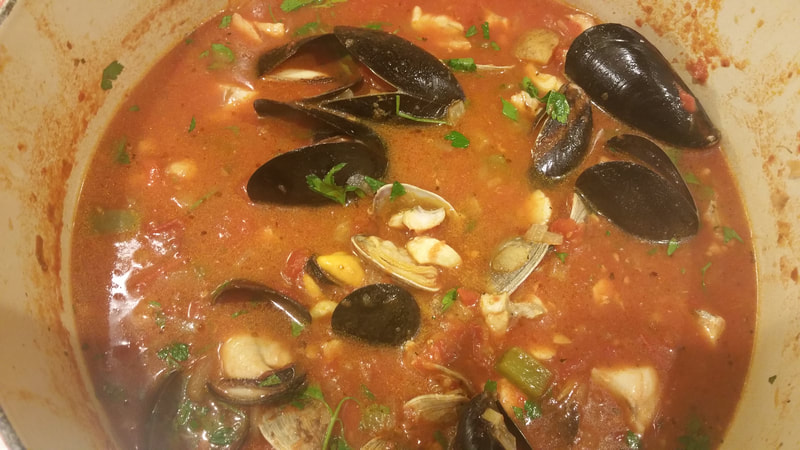
 RSS Feed
RSS Feed